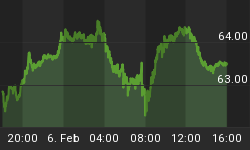Marketplace from American Public Media

Dan Kitwood/Getty Images
Trading dollars for euros could be a risky move.
by Bob Moon
Marketplace for Thursday, December 1, 2011
Kai Ryssdal: Let's review the big economic news of the past 24 hours as a way to set the scene today, all right?
The world's biggest central banks have agreed to make it easier -- that is, cheaper -- for European banks to get dollars. They've done so in the hopes that that will unstick the gummed up credit markets over there.
But let's step back for just a second. Where are they going to get those dollars? That's right: The Federal Reserve Bank of the United States.
And what does the Fed get for its troubles? Euros. The currency whose very future is in no small amount of doubt. The Fed says it's only agreed to a temporary swap of dollars for euros, which will be true if things go according to plan.
If they don't? Well, here's our senior business correspondent Bob Moon.
Bob Moon: Risk adviser Christopher Whalen says the U.S. hasn't learned from history. He says we bailed out Europe after both world wars, only to have the Europeans default. He's not impressed that the Fed is taking euros as collateral.
Christopher Whalen: What if there's no euro a year from now? You just had the U.K. tell its banks yesterday to prepare for the end of the euro. So the Fed could be holding worthless currency, and the Europeans may just default as they have before.
Not only that, should the euro tank, the Fed might not even be able to sell its euros. So says Frederick Sheehan, the author of several books on the Fed. He's suspicious of the Fed's reassurances that we'll hold euros for whatever dollars we swap with the European Central Bank.
Frederick Sheehan: That is a half-truth. We hold them, but they are sitting in a reserve account at the ECB. We do not have possession of them.
Sheehan says Ben Bernanke's past venture with a $500 billion euro-swap in 2008 raised some questions. Florida Democrat Alan Grayson pressed the Fed chairman at a congressional hearing, and learned Bernanke hadn't kept track of where the bailout went.
Alan Grayson: So who got the money?
Ben Bernanke: Financial institutions in Europe and other countries.
Grayson: Which ones?
Bernanke: I don't know.
Grayson: Half a trillion dollars and you don't know who got the money?
In the end, the U.S. was paid back, with interest. And there are legal protections built into this deal. But Sheehan says the banking crisis then was small compared to shaky national economies.
Sheehan: Now the sovereigns are at risk, and they cannot ultimately provide enough currency to protect themselves.
Risk expert Christopher Whalen worries if the Fed doesn't eventually get all those dollars back, we'll all feel the effects.
Whalen: Not so much that, you know, the Fed's going to go out of business because it loses money, but the real impact on consumers is higher inflation. And the cost is going hit you right in the pocketbook, in terms of what your dollar can buy.
Whalen says that pain could linger for years.
I'm Bob Moon for Marketplace.
Frederick Sheehan writes a blog at www.aucontrarian.com
















